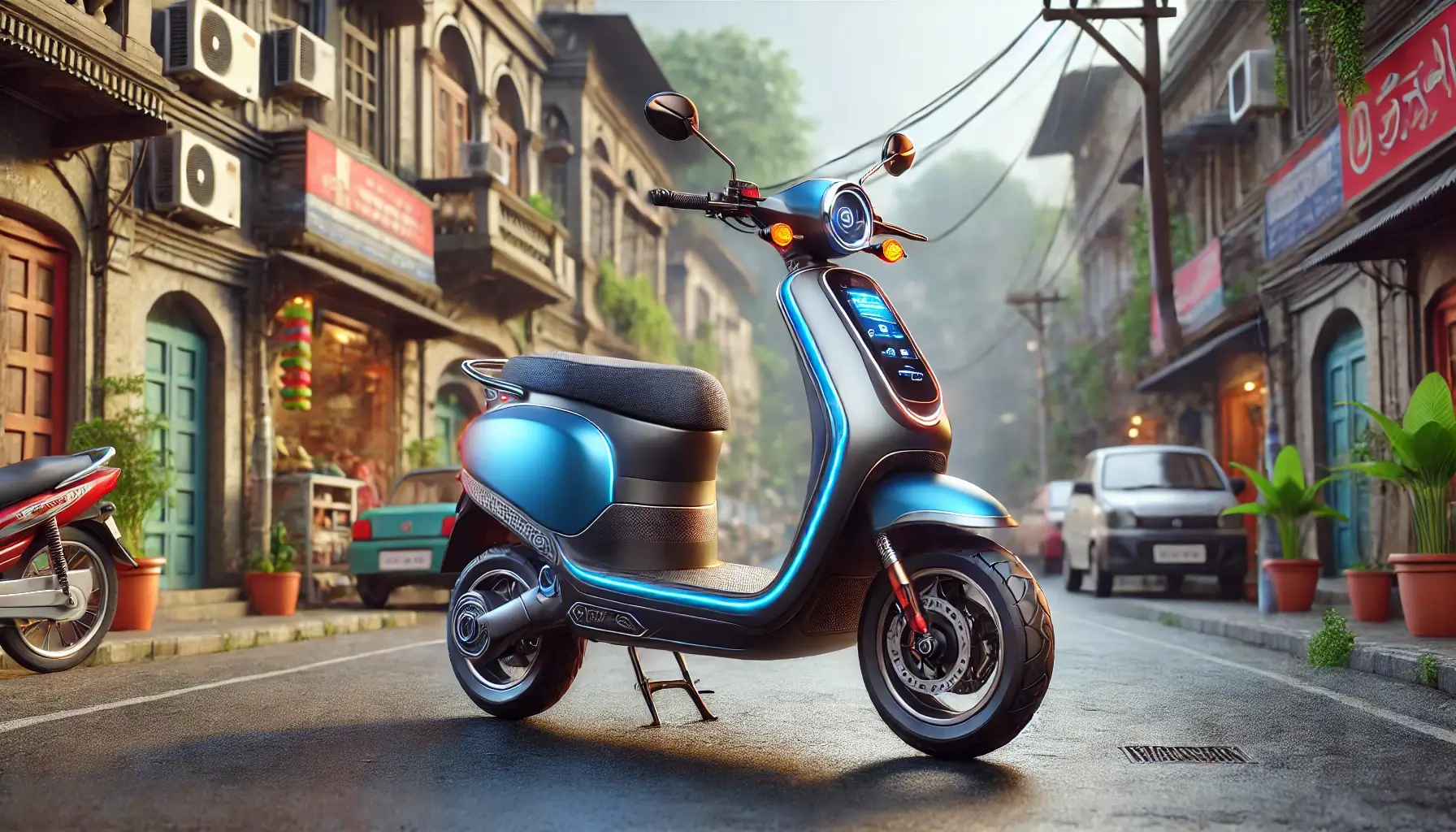Electric scooters are gaining popularity in India due to their eco-friendliness and lower running costs. However, before deciding to purchase one, it’s important to consider whether an electric scooter is the right choice for your needs. This guide will walk you through the pros and cons of buying an electric scooter in India and provide essential insights and checklists to help you make an informed decision.
Electric Scooter in India

Pros of Electric Scooters in India:
- Eco-Friendly Transportation
Electric scooters produce zero emissions, making them a greener choice for the environment. As India faces growing concerns about air pollution, electric scooters offer an environmentally friendly alternative to petrol vehicles. - Lower Operating Costs
With the constant rise in fuel prices, electric scooters are cheaper to operate. Electricity costs are significantly lower than petrol, providing long-term savings, especially for daily commuters. - Government Incentives
India’s government offers subsidies and incentives for electric vehicle (EV) purchases. This makes electric scooters more affordable and attractive, especially in urban areas where short-distance commuting is common. - Low Maintenance
Electric scooters have fewer moving parts than traditional petrol scooters, requiring less frequent servicing. You won’t need to worry about oil changes or engine repairs, which can save you money over time. - Silent Operation
Electric scooters are almost noiseless, contributing to a more peaceful environment in busy cities. For those who live in noise-polluted areas, the quiet operation can be a big advantage.
Cons of Electric Scooters in India:
- High Initial Costs
Electric scooters are more expensive than their petrol counterparts. Even with government subsidies, the upfront cost can still be a barrier for many buyers. - Inexperienced Mechanics
There is a limited number of experienced mechanics capable of repairing electric scooters in India. This could lead to delays or higher repair costs, especially in smaller towns and rural areas. - Limited Power and Performance
Many electric scooters do not offer the same thrill or performance as petrol scooters. The acceleration and top speed might not satisfy those who prefer faster, more powerful rides. - Battery Life and Replacement Costs
Electric scooter batteries typically need replacement every 3–5 years, which can be quite expensive. Battery disposal also raises environmental concerns. - Long Charging Time
Charging an electric scooter can take several hours, unlike petrol scooters, which can be refuelled in minutes. This can be a major inconvenience if you need to charge your scooter frequently. - Limited Range
Electric scooters have a limited range, often between 70 and 150 km on a single charge. For long-distance rides, especially in areas where charging infrastructure is sparse, this can be a significant drawback. - Insufficient Charging Infrastructure
India still lacks a comprehensive network of charging stations, especially outside major cities. This could lead to range anxiety and inconvenience during long trips. - Weather Dependency
Power cuts are common in some parts of India, making it difficult to recharge your electric scooter when needed. During the monsoon season, water damage may also affect battery performance. - Safety Concerns
Electric scooters can be less stable than traditional petrol scooters due to their lightweight build. There is also an increasing number of accidents involving electric scooters on roads and pavements, raising safety concerns. - Insurance Challenges
Many insurance companies do not cover electric scooters under standard two-wheeler insurance policies, making it harder and more expensive to insure them.
Who is an Electric Scooter Suitable For?
Electric scooters might not be the ideal choice for everyone. They are best suited for:
- Elderly or Retired Individuals:
For older adults who need a quiet, low-speed vehicle for short commutes or daily errands, electric scooters are a great option. The ease of use and low maintenance makes them appealing to this demographic. - Urban Commuters:
People living in cities with short commutes can benefit from the low running costs and the convenience of electric scooters. They are ideal for travelling short distances in traffic-heavy areas. - Eco-Conscious Consumers:
If you’re focused on reducing your carbon footprint, an electric scooter is an excellent choice, helping you contribute to environmental preservation.
What to Look for When Buying an Electric Scooter
If you are considering an electric scooter, here are some key things to look out for:
- Battery Life and Range:
Ensure the scooter’s range fits your daily commuting needs. Check the battery life and find out the cost of replacement to avoid future surprises. - Charging Time:
Consider how long the battery takes to charge. For frequent use, you will want a scooter with a quick charge time. - Power and Performance:
Review the scooter’s power, top speed, and performance on inclines if you live in hilly areas. Some electric scooters may not handle steep slopes well. - Weight Capacity:
Check the maximum weight capacity to ensure it suits your needs. Lightweight scooters might not be suitable for carrying heavy loads. - Price and Warranty:
Compare prices and make sure the scooter comes with a good warranty, especially for the battery and motor. - Charging Infrastructure:
Make sure you have easy access to charging stations or a convenient place to charge the scooter at home or work. - Safety Features:
Look for essential safety features like anti-lock braking systems (ABS), quality tyres, and durable build to ensure you stay safe on the road.
Checklist: Should You Buy an Electric Scooter?
Before making a decision, ask yourself these questions:
- Do you live in an area with reliable access to charging stations or power outlets?
- Are you comfortable with the limited range of an electric scooter for your daily commuting needs?
- Is the upfront cost of an electric scooter within your budget?
- Can you handle the long charging times compared to refuelling a petrol scooter?
- Are you willing to bear the cost of battery replacement in 3–5 years?
- Do you prioritise environmental benefits over the thrill of driving?
- Does your daily commute fall within the performance limits of most electric scooters?
If you answered “yes” to most of these questions, an electric scooter might be a suitable option for you. However, if you prioritise power, speed, or need a vehicle for long-distance travel, a traditional petrol scooter may still be a better choice.
- Also consider checking the resale value of electric scooters in India.
Conclusion: Weighing the Pros and Cons
If you’re someone who values eco-friendliness, ease of use, and don’t mind the limitations, an electric scooter could be perfect for your lifestyle. However, for those seeking long-distance travel or a vehicle with more power and convenience, it might be better to stick with a petrol scooter for now.
Help others make the right choice – share this before they buy an electric scooter!


Comments and Discussions